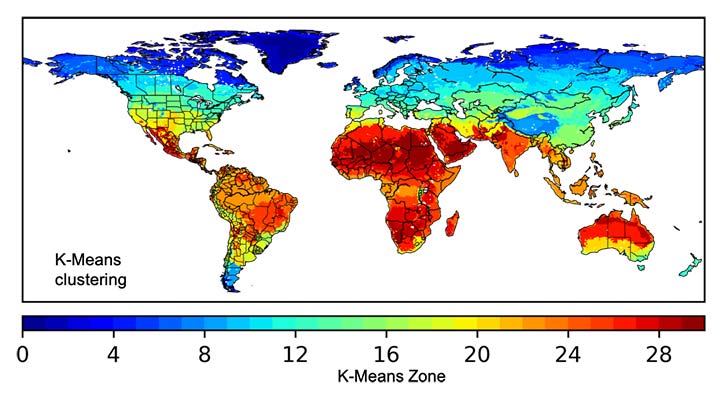Climate Classifications for Photovoltaic Degradation
DuraMAT will develop an alternative climate classification system that is tailored to photovoltaic (PV) performance and degradation.
Preliminary work from Sandia National Laboratories indicates that by considering factors such as thermal cycling, total moisture exposure, damp heat, and wind loading, one can arrive at a climate classification system that is significantly different from and ultimately more relevant for PV than the existing Koppen-Geiger classifications. This project will analyze meteorological data as well as PV performance data to arrive at a new climate classification scheme.
The performance of PV modules depends on environmental stressors, which can stress and damage the bonds, encapsulate, packaging, electrical components, and ultimately degrade power output over time. Currently, researchers and practitioners commonly rely on the Koppen-Geiger climate zone classification to determine environmental effects on solar performance. However, the Koppen-Geiger classification system was originally developed for botany, and its application to solar PV degradation is not fully justified.
Core Objective
Location
Sandia National Laboratories (prime)
Lawrence Berkeley National Laboratory (secondary)
Availability
It will be available to the general public.
Contact
To learn more about this project, contact Birk Jones or Anubhav Jain.

Distribution of photovoltaic climate zones (PVCZ) based on k-means clustering across equivalent temperature, temperature velocity, specific humidity, and wind speed.